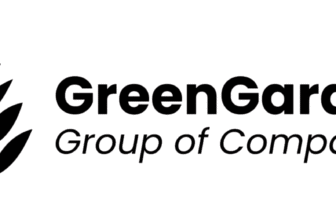
Introduction
As environmental concerns become more prominent across industries, manufacturers are focusing on sustainable practices and materials. The rubber industry, in particular, faces challenges due to its reliance on natural and synthetic resources. However, innovative approaches and eco-friendly solutions are changing the landscape of rubber manufacturing. This blog explores the growing demand for eco-friendly rubber products and how manufacturers like Excel Rubber Industries are playing a pivotal role in shaping a greener future.
The Environmental Impact of Traditional Rubber Manufacturing
Rubber has been a critical material across industries, including automotive, construction, and consumer goods. Traditionally, rubber manufacturing involves natural latex from rubber trees or synthetic processes using petrochemicals. Both approaches come with significant environmental concerns:
1. Natural Rubber: Although a renewable resource, natural rubber harvesting can lead to deforestation and biodiversity loss, particularly in Southeast Asia. The demand for land to cultivate rubber trees often results in the destruction of forests, impacting wildlife and ecosystems.
2. Synthetic Rubber: Produced from petrochemicals, synthetic rubber poses its own set of environmental issues. The production process generates carbon emissions, consumes large amounts of energy, and creates toxic byproducts. Moreover, synthetic rubber products are often non-biodegradable, contributing to waste in landfills.
Innovations in Sustainable Rubber Manufacturing
Manufacturers are increasingly adopting eco-friendly methods to mitigate the environmental impact of rubber production. These innovations include the development of recycled rubber, bio-based materials, and circular economy practices.
1. Recycled Rubber: Recycling old rubber products, such as tires, into new materials is gaining traction. This process reduces the need for raw materials and minimizes waste. Recycled rubber can be used in products like rubber flooring, mats, and playground surfaces.
2. Bio-Based Rubbers: Research into alternative materials has led to the creation of biodegradable rubbers made from plants and renewable sources. For example, researchers are developing rubbers derived from dandelion latex and guayule, which could offer a sustainable alternative to traditional rubber.
3. Circular Economy: Manufacturers are embracing circular economy principles by designing rubber products with recycling in mind. This approach extends the lifecycle of rubber products, ensuring they can be repurposed or recycled at the end of their use.
EPDM and Silicone: Sustainable Rubber Solutions
Two of the most widely used eco-friendly rubber materials are EPDM (Ethylene Propylene Diene Monomer) and silicone rubber. Both offer unique properties that make them suitable for sustainable applications.
- EPDM Rubber: Known for its durability and resistance to weathering, EPDM is often used in roofing, automotive seals, and gaskets. Its long lifespan reduces the frequency of replacement, making it a sustainable choice for various industries. Additionally, EPDM is recyclable, further minimizing its environmental impact.
- Silicone Rubber: Silicone is renowned for its temperature resistance, making it ideal for applications exposed to extreme conditions. It also has excellent insulation properties, which is why it’s used in medical devices and electrical insulation. The long life of silicone products reduces waste and environmental impact over time.
Sustainable Manufacturing Practices in the Rubber Industry
In addition to material innovations, manufacturers are adopting more sustainable practices throughout the production process. Some of these practices include:
1. Waste Reduction: Advanced manufacturing techniques are being implemented to reduce the amount of rubber waste generated during production. For instance, 3D printing technologies allow for precision manufacturing, minimizing material waste.
2. Energy Efficiency: Many manufacturers are transitioning to energy-efficient production methods, such as using renewable energy sources in their facilities. This shift not only reduces carbon emissions but also lowers production costs over time.
3. Water Conservation: Rubber production can be water-intensive, particularly in the processing of natural rubber latex. Manufacturers are now investing in water conservation technologies and recycling water within their production systems.
Industry Adoption of Eco-Friendly Rubber Products
The growing awareness of environmental issues has led to increased demand for eco-friendly rubber products across industries. Here are a few sectors where the adoption of sustainable rubber solutions is becoming a priority:
1. Automotive Industry: The shift towards electric vehicles (EVs) has spurred a demand for sustainable materials, including rubber. EV manufacturers are seeking eco-friendly rubber components, such as gaskets and seals, to reduce the overall carbon footprint of their vehicles.
2. Construction: The construction industry is increasingly turning to sustainable materials for insulation, weatherproofing, and vibration damping applications. EPDM roofing membranes, for example, offer energy efficiency and durability, making them a popular choice in green building projects.
3. Consumer Goods: From rubber gloves to flooring, consumers are becoming more conscious of the environmental impact of the products they purchase. The demand for biodegradable rubber products in consumer goods is rising as companies focus on sustainable alternatives.
Excel Rubber Industries: Leading the Way in Sustainability
At the forefront of sustainable rubber manufacturing is Excel Rubber Industries, which has adopted environmentally friendly practices and offers a wide range of eco-friendly rubber products. The company’s focus on recyclable materials, coupled with its commitment to reducing waste and energy consumption, positions it as a leader in the green transition.
Excel Rubber Industries specializes in EPDM rubber seals, silicone gaskets, and recycled rubber products that meet the stringent requirements of industries seeking sustainable solutions. By partnering with eco-conscious clients, Excel Rubber helps businesses achieve their sustainability goals while maintaining high performance and quality standards.
The Future of Eco-Friendly Rubber
As the demand for sustainable products continues to grow, the rubber industry will likely see even more innovations. From the development of advanced biodegradable materials to the adoption of green manufacturing practices, the future of rubber manufacturing is rooted in sustainability.
Conclusion
The rubber industry is undergoing a transformation toward sustainability, driven by environmental concerns and the need for greener solutions. From recycled rubber to biodegradable alternatives, manufacturers are finding new ways to reduce their impact on the planet. Excel Rubber Industries is a key player in this movement, offering high-quality, eco-friendly rubber products that cater to a wide range of industries. By embracing sustainability, the rubber industry is not only helping the environment but also paving the way for a greener, more responsible future.







